Chavis Marmol, Neo Tameme
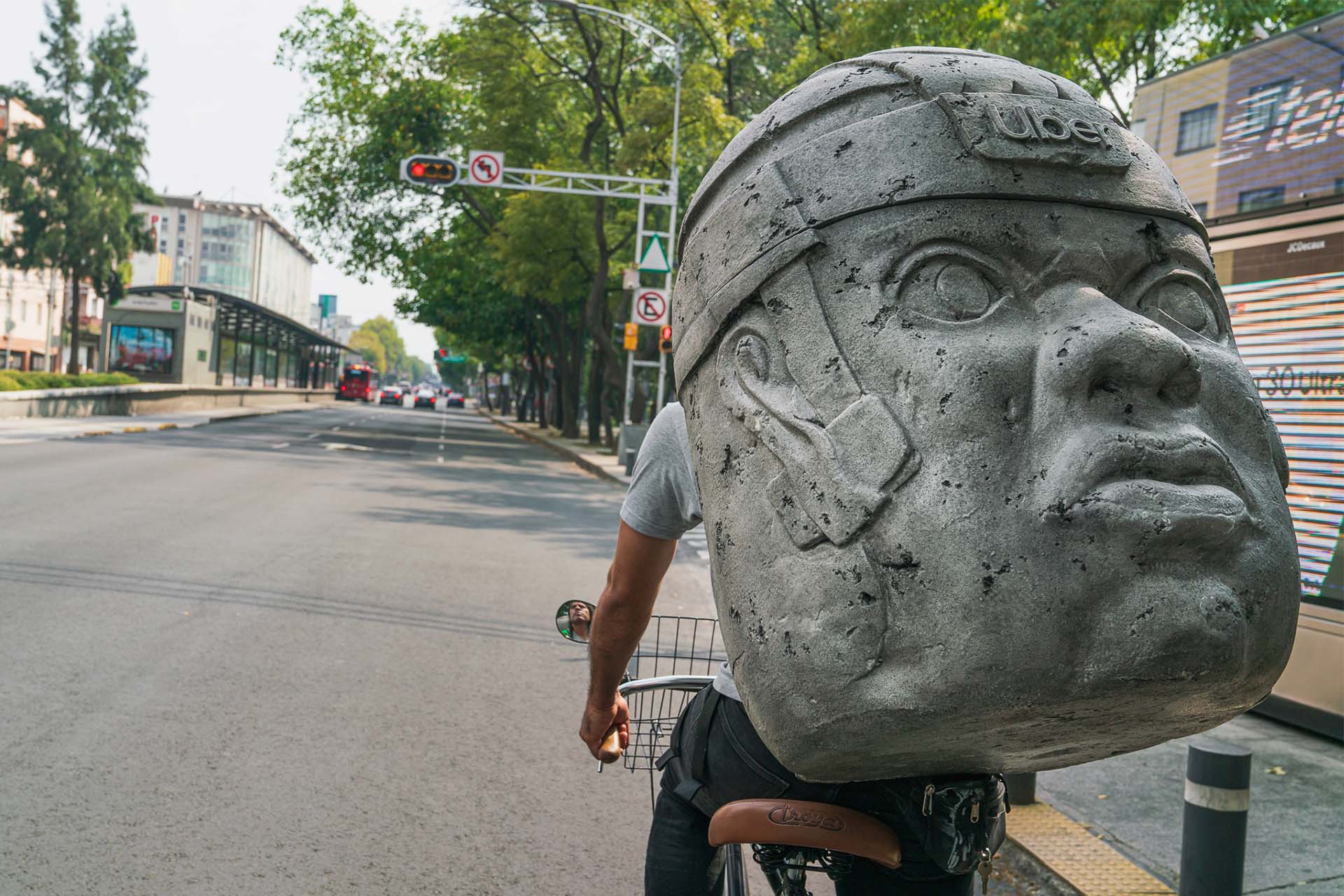
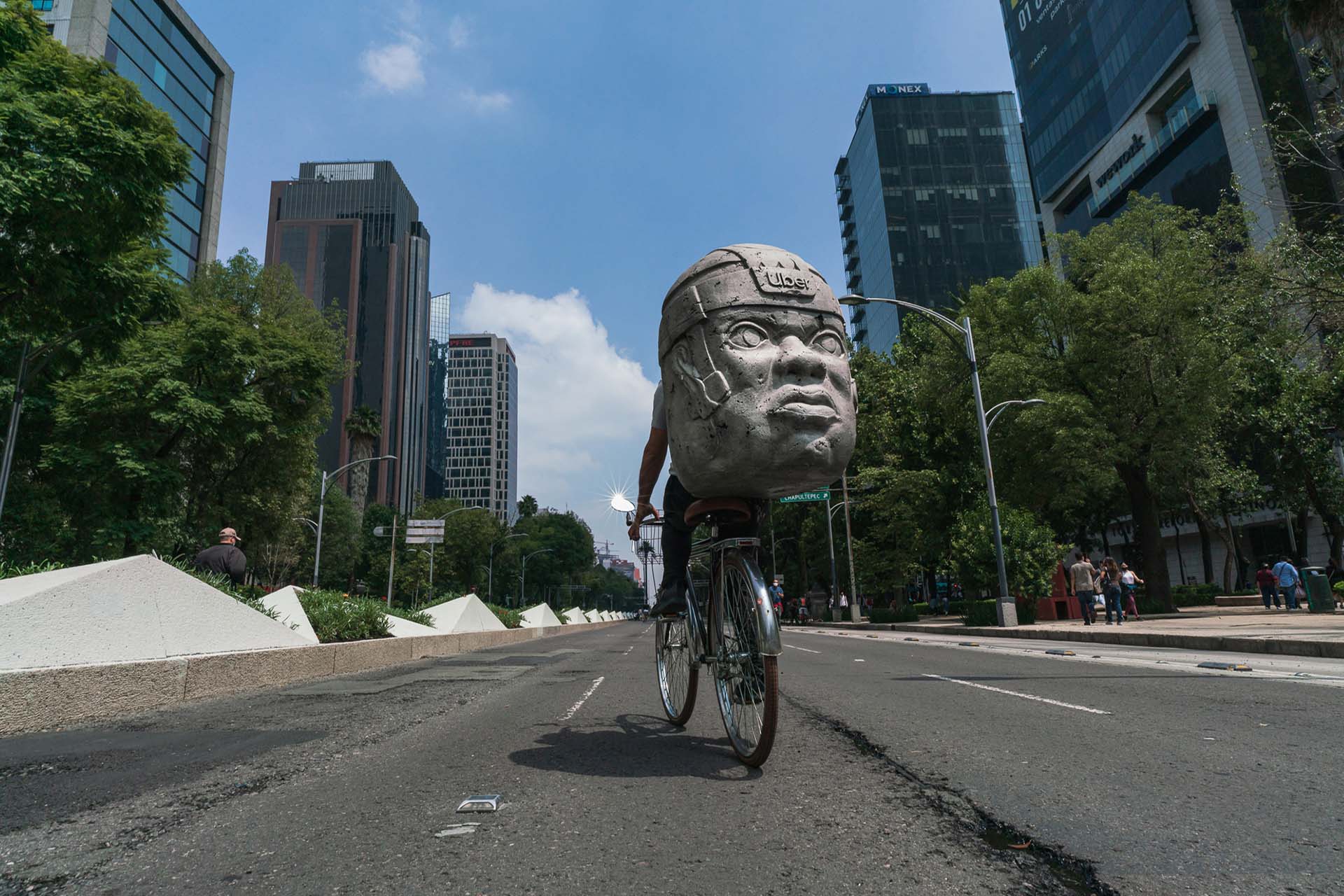
Inspired by the Tamemes, from the Nahuatl “tlamama,” which means to carry or load, the project starts with a crucial question: is progress—or the concept of improving human living conditions— possible without the exploitation of natural and human resources?
Since there were no pack animals in pre-Hispanic Mexico, the Tamemes carried all kinds of goods on their backs. With the Spanish conquest the first pack animals arrived, which later replaced their transport work, or at least part of it.
The truth is that, in these times, manpower to transport goods is still essential for trade.
This is the case for the food delivery drivers of apps such as Uber Eats, Didi Food, or Sin Delantal, who work in a very similar way as the Tamemes did more than 500 years ago, even in terms of their working conditions. Although the social and economic situation of the Tamemes is unknown, we assume it was not the best. Added to this today are the contemporary risks involved in delivering by either walking, bicycle or motorcycle, and the very precarious wages that the supposed “partners” of the app receive for their services.
However, the project does not aim to denounce injustice but to tell a story. Just as we now know that the Tamemes existed thanks to codices and the work of historians who write about them, it is necessary to tell the story of those who work delivering food. Those Neo Tamemes are now part of the fauna of big cities.
A delivery man on a bicycle carrying a large stone satirizes the work involved in carrying a huge weight on his back. And it is not just any stone, but a product of one of the oldest civilizations on record in America. Added to the extraordinary beauty of these sculptures, the object obtained could not be more perfect and precise.
That's why for a few months Chavis Mármol worked a couple of hours a day delivering food with the Uber Eats App and cycling around the city with an Olmeca headbackpack shaped like an Olmec head, which sometimes had burgers, tacos or sushi inside, as well as other food that people ordered from their apps.
Neo Tamemes and many of the artist's works speak and relate to the problems of the present—that present that often feels so meaningless—by constantly creatively questioning it with a sense of humor and, of course, art.
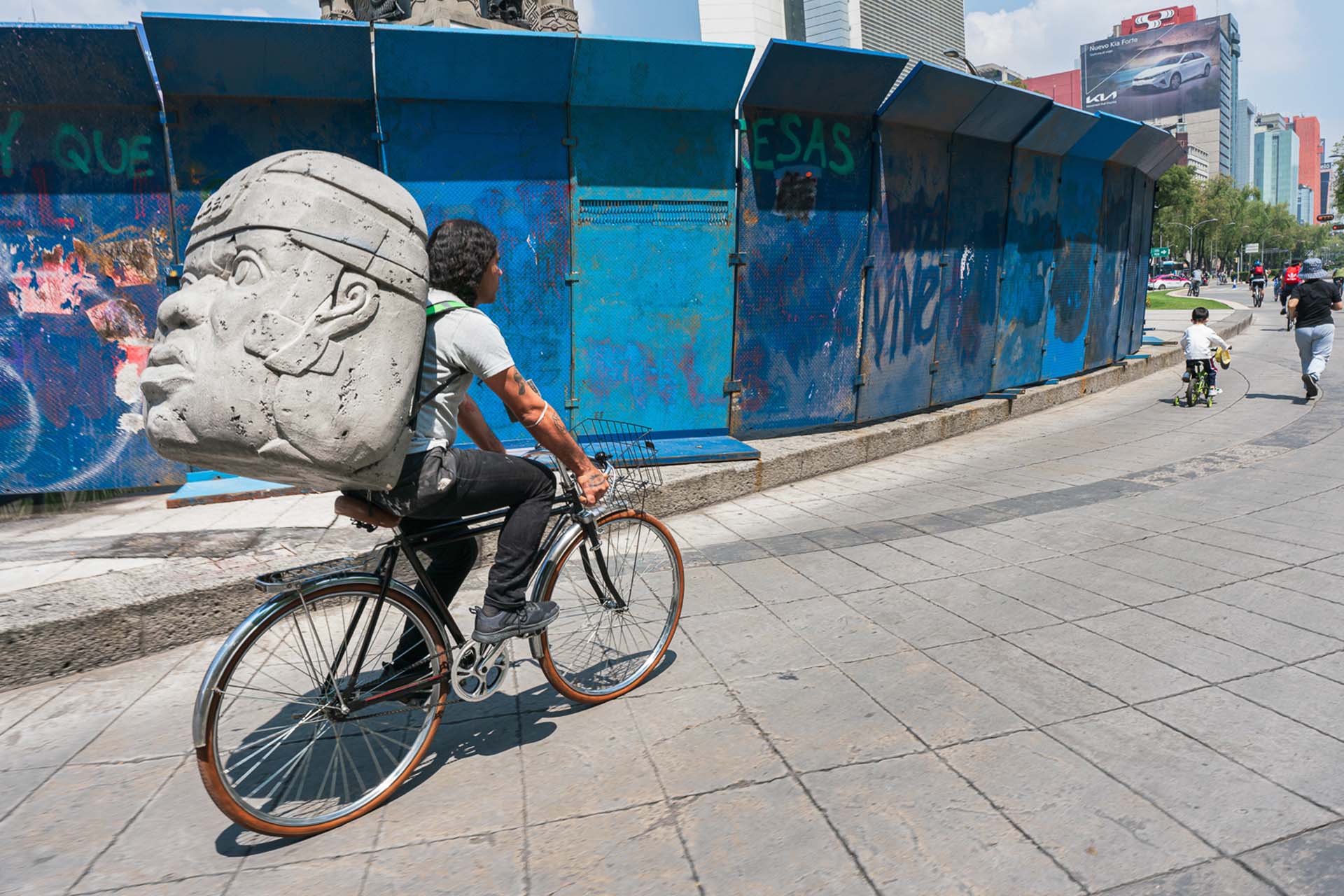
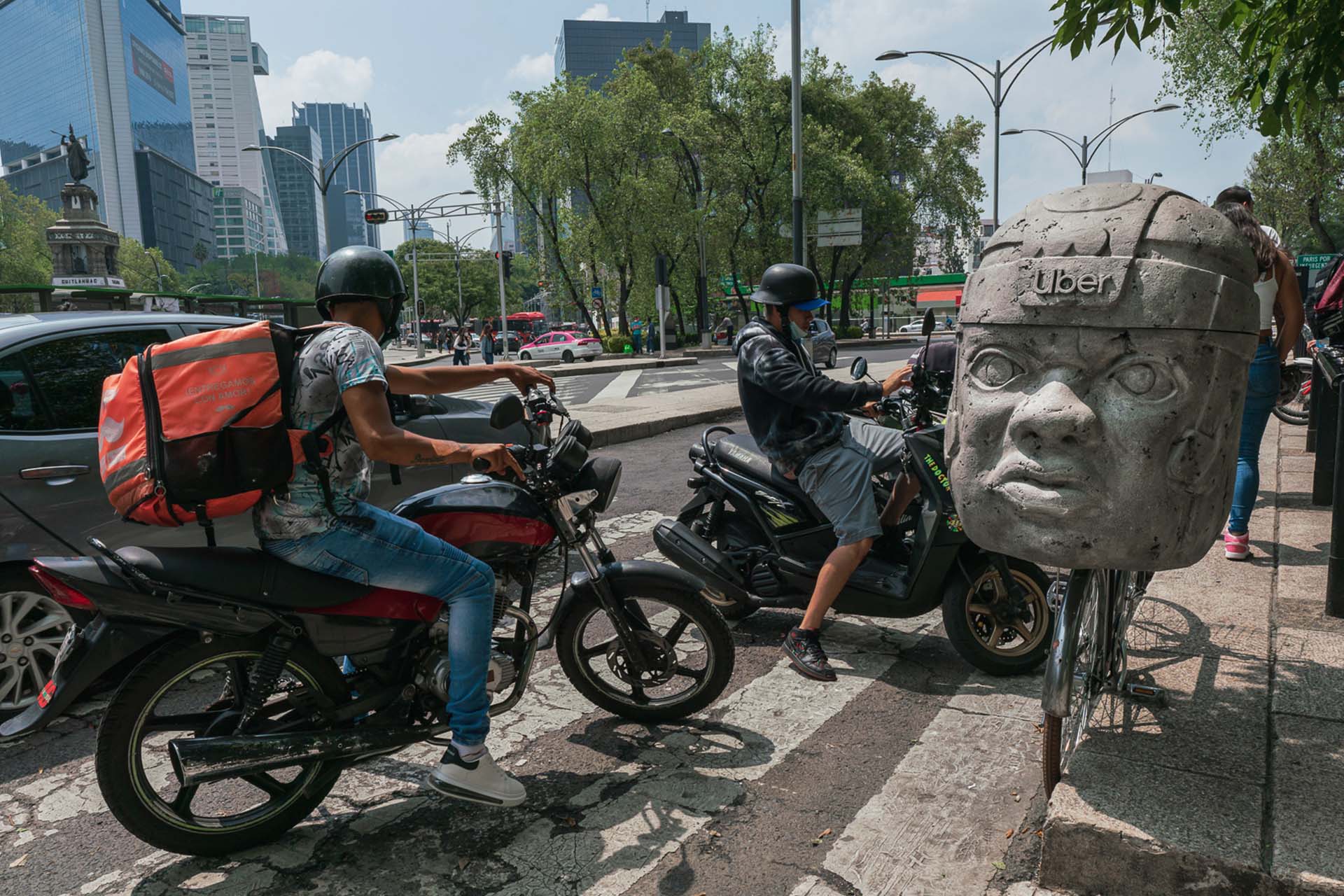
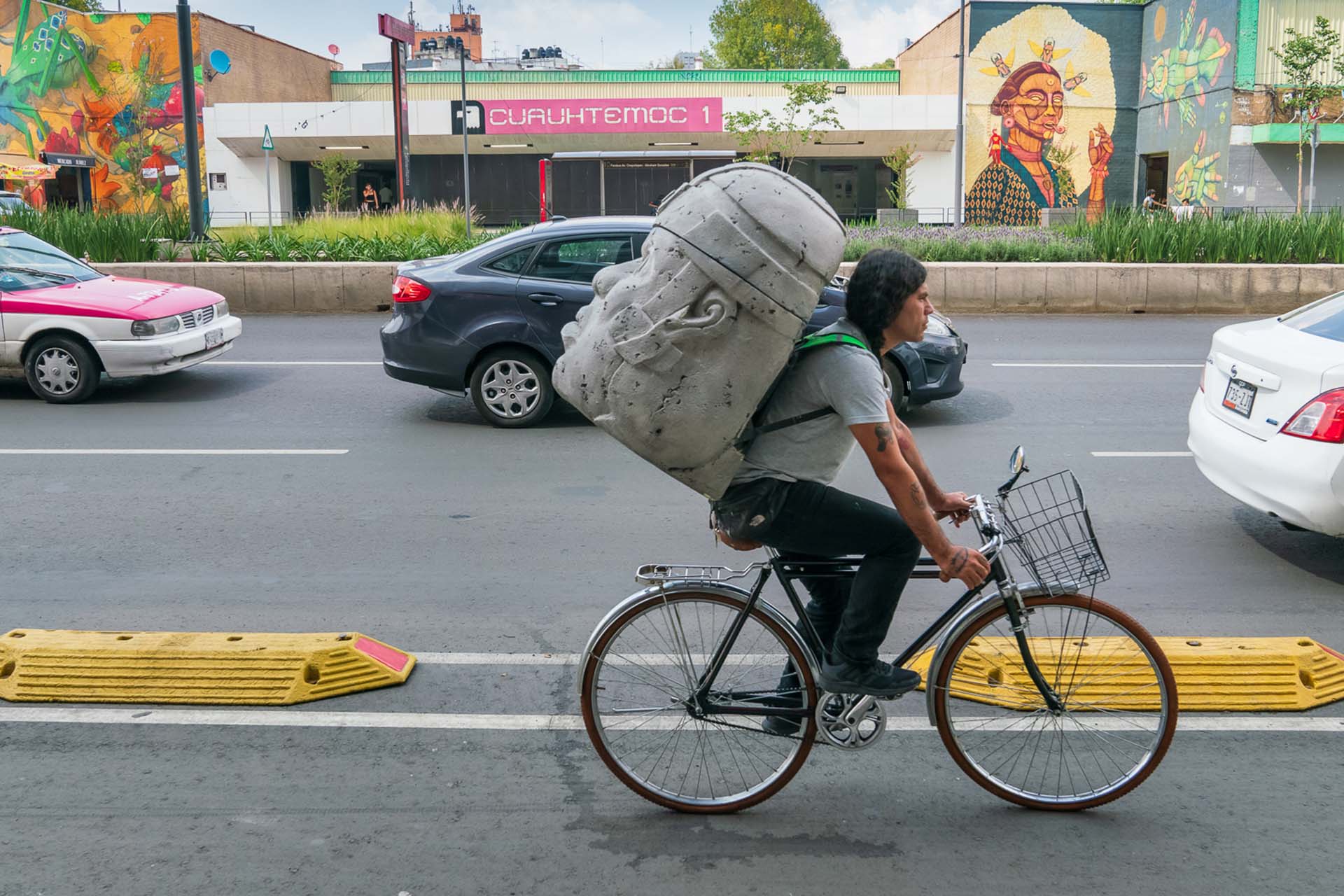
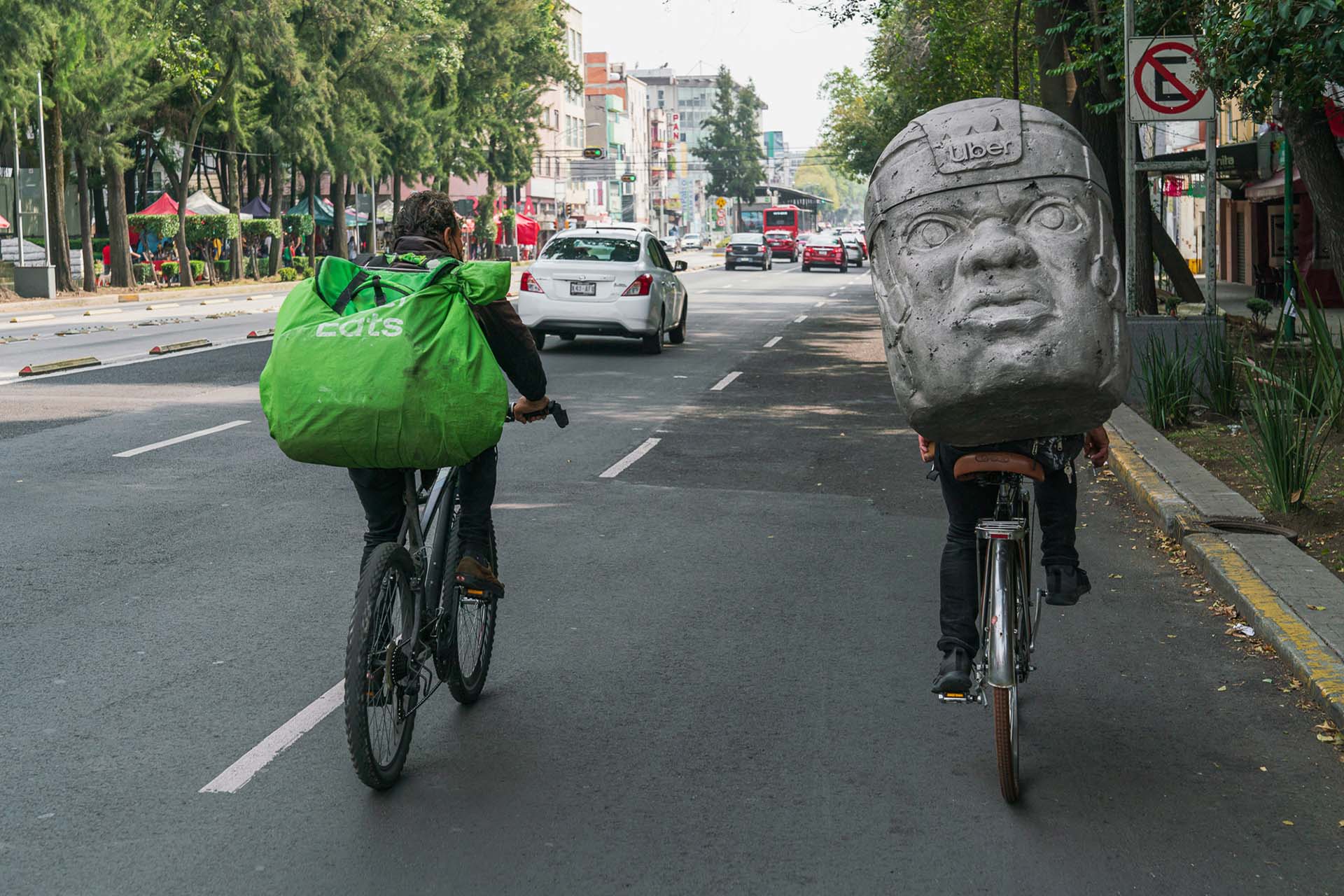
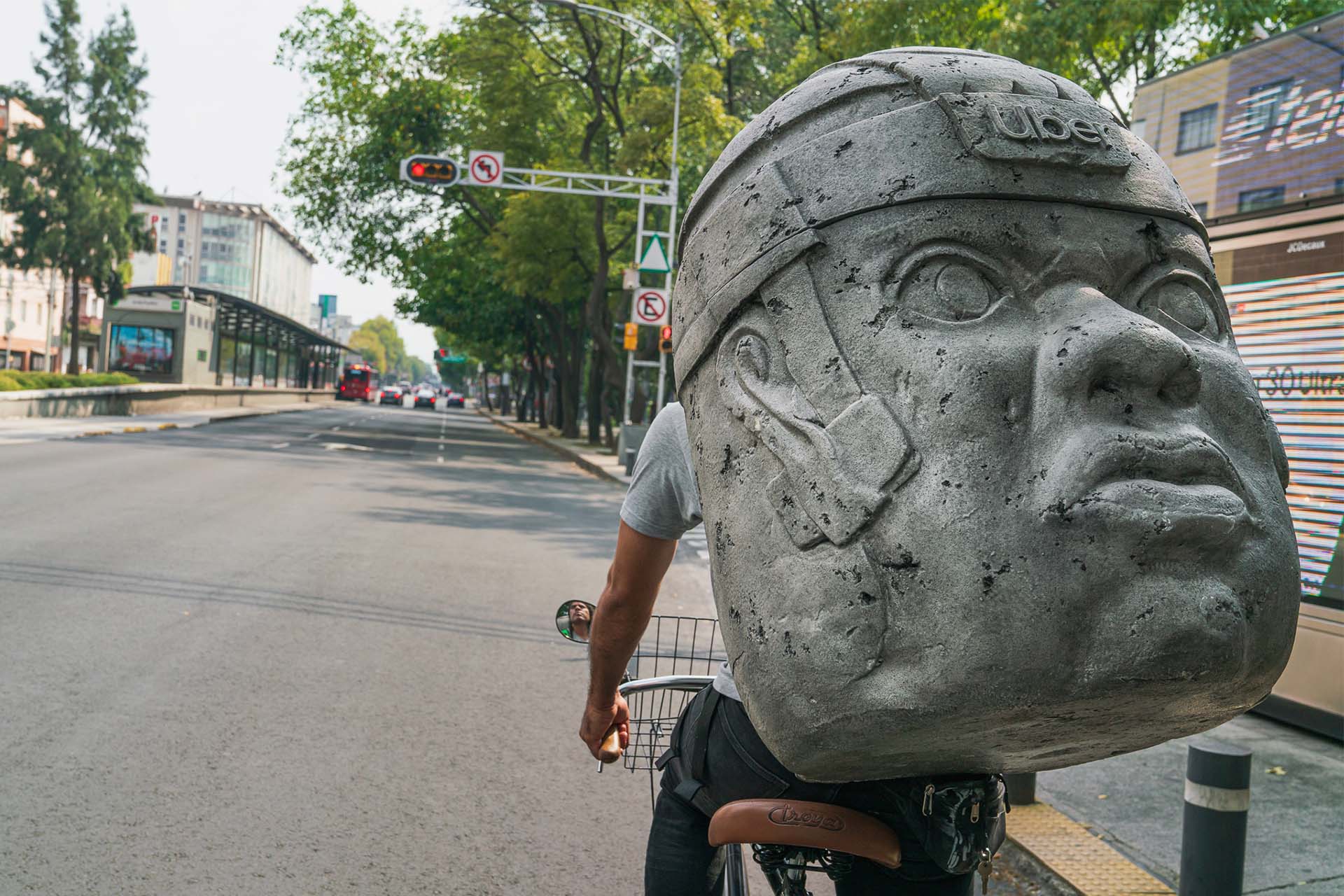
Chavis Marmol is a Mexican artists based in Mexico City. Like many primates, he is moderately domesticated in a lower middle class environment. He studied Visual Arts at the Universidad Autónoma del Estado de Hidalgo, later obtained a Master’s in Visual Arts at the Universidad Autónoma de México UNAM and was rejected three consecutive times from the SOMA Educational Program.
Images by Cristina Medellin Galvan, courtesy of the artist. Production: Chavis Mármol and Yunke Fábrica de Arte.
